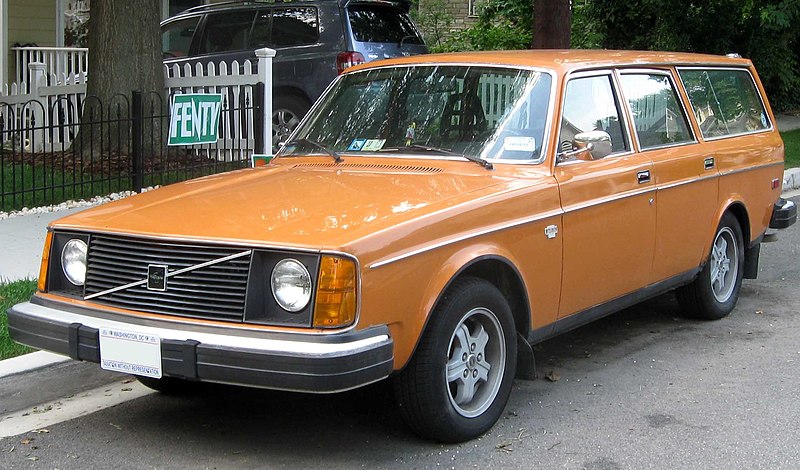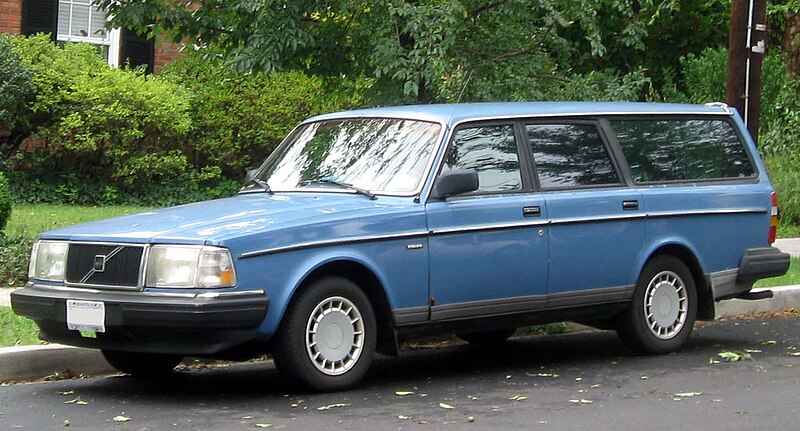 |
| An early 240 or 245 if you're a Volvo trainspotter type |
By the time the 240 left us in 1993, Volvo had become synonymous with estate car, and perhaps, blandness too, but nobody who owned one cared much what others think of them. The relatively high standards of safety for the time led to a perception by some owners of the invulnerability in the Volvo and often attracted the careful, slower driver such that a catchphrase was coined: Volvo Syndrome. I remember a comedy sketch (possibly from Australia?) showing a man clearly labelled with a Volvo logo, bumbling around blindly into people on foot, blissfully uncaring thanks to his array of air bags around his body. Perhaps this partly lies at the root of occasional hostility shown towards Volvo drivers by some motorbikers and the like? The early innovation of day time running lights (now standard on all EU sold cars) seemed to draw criticism too, and for no obvious reason. Perhaps it was the touch of smugness from Volvo owners that helped stoked the fires? A smugness that, these days, appears to have been inherited by Prius drivers.
I never had a 240 myself, but did have a 2001 V70, and was really quite surprised by how other road users treated me compared to when I was driving other cars. They expected me to be slow, indecisive and a little bit gaga, and acted accordingly. I guess I had a generation of 240 drivers to thank for that!
 |
| "Volvos - they're boxy but they're good" - the late, great Dudley Moore in Crazy People |
Times have changed for Volvo as a brand, with sales of the modern V70 tanking, if you pardon the pun, compared to the more popular XC60 soft-roader. The old 240 is falling prey to this change in fashion, and to tin worm I expect, and its numbers are dropping fast. Shortly after sales stopped in the UK, there were 83,000 240s around. These days you can count around 3,500, mostly late 80s and early 90s cars.
Despite their reputation as tanks that run forever, they may well disappear in front of our very eyes without anyone realising. Get a good one now and find a nice warm garage for it, which would be slightly ironic given its origins, but still...
No comments:
Post a Comment